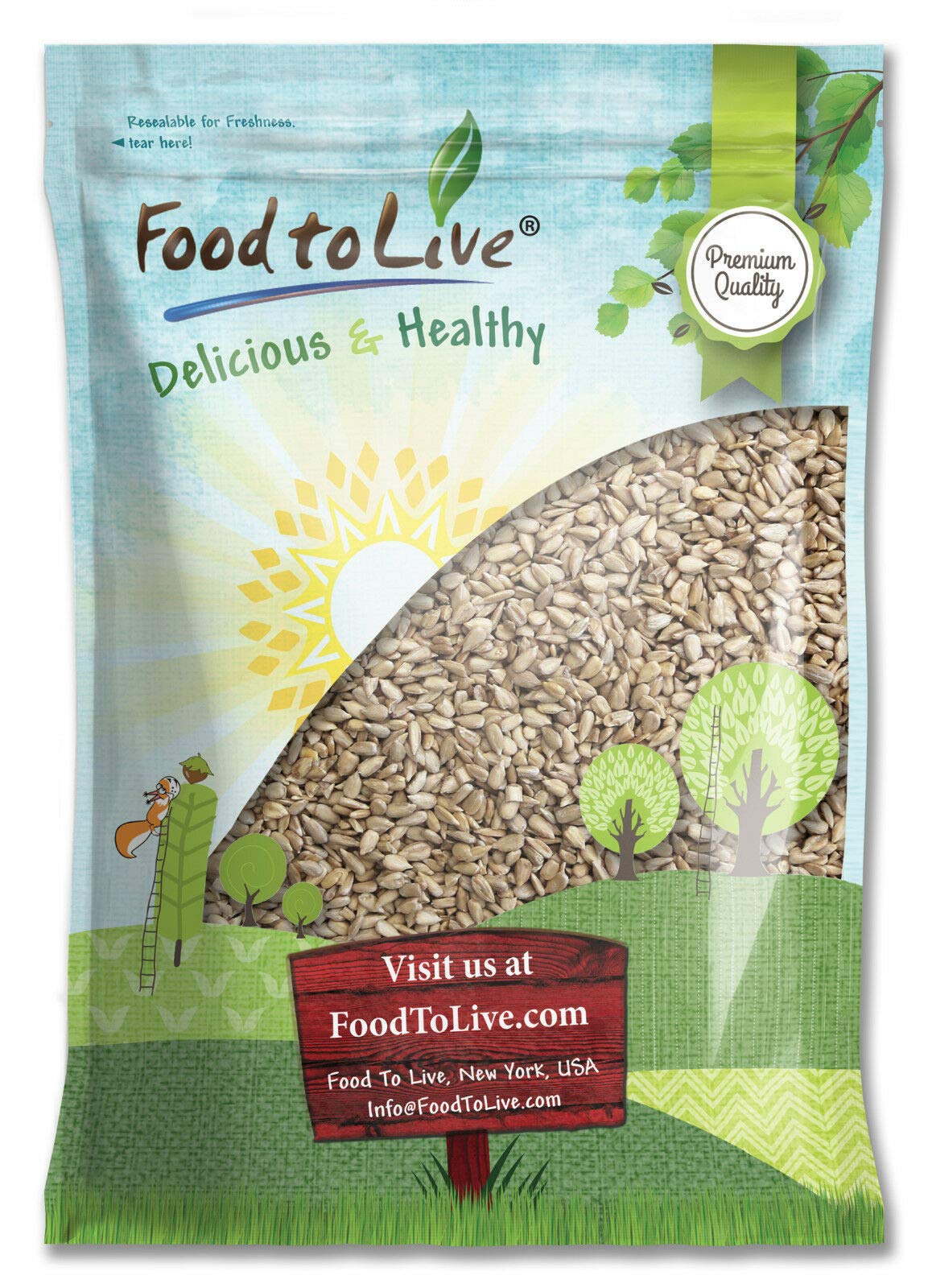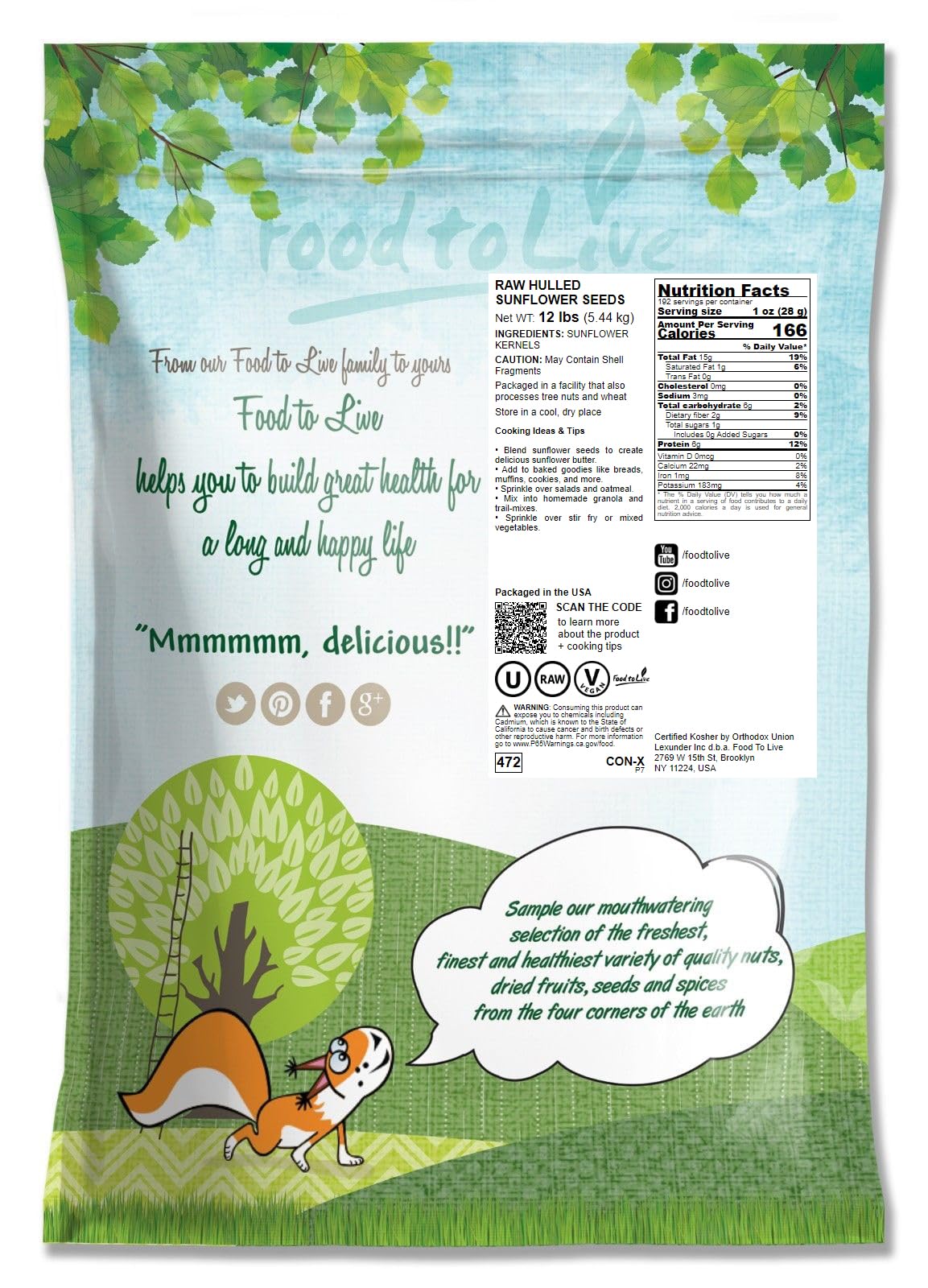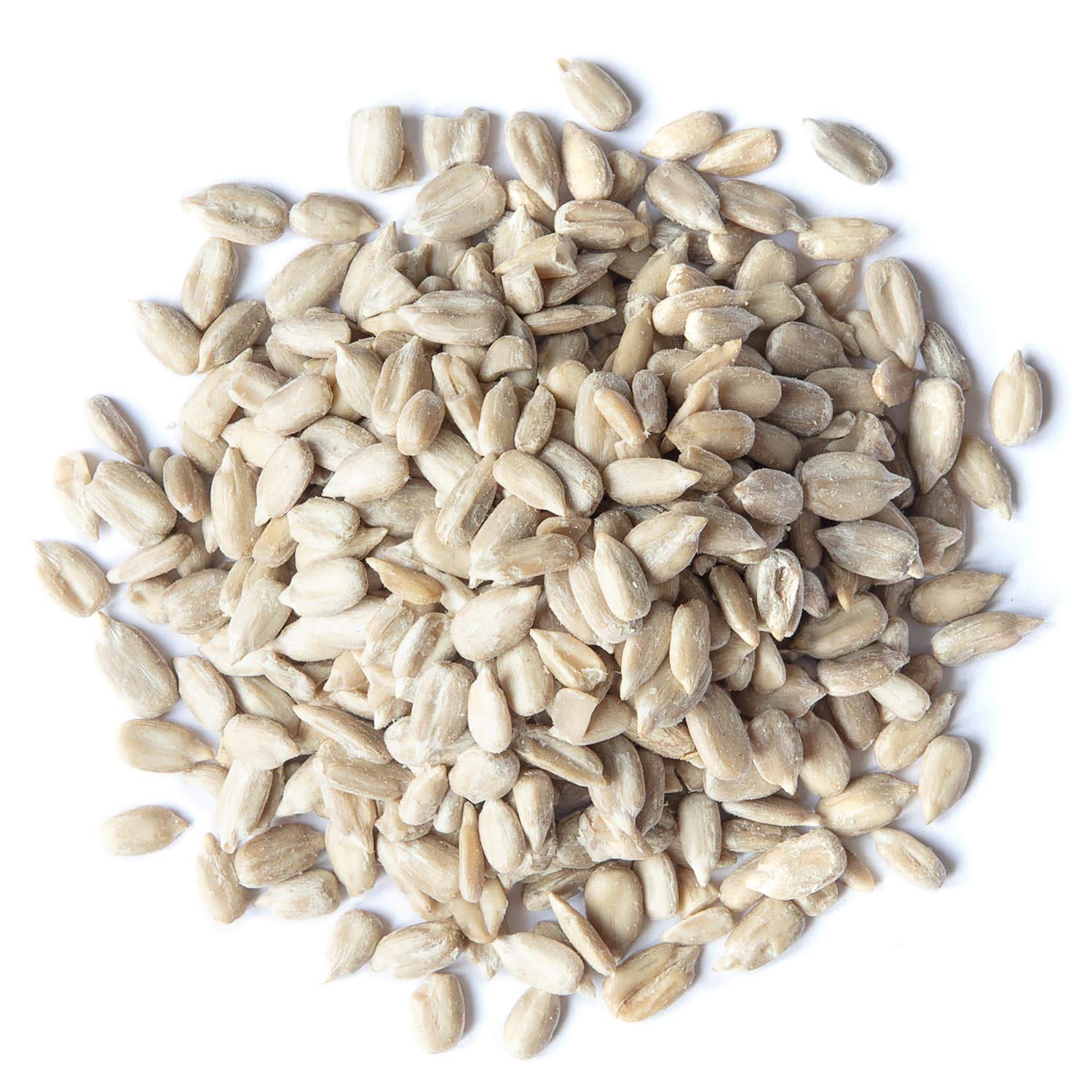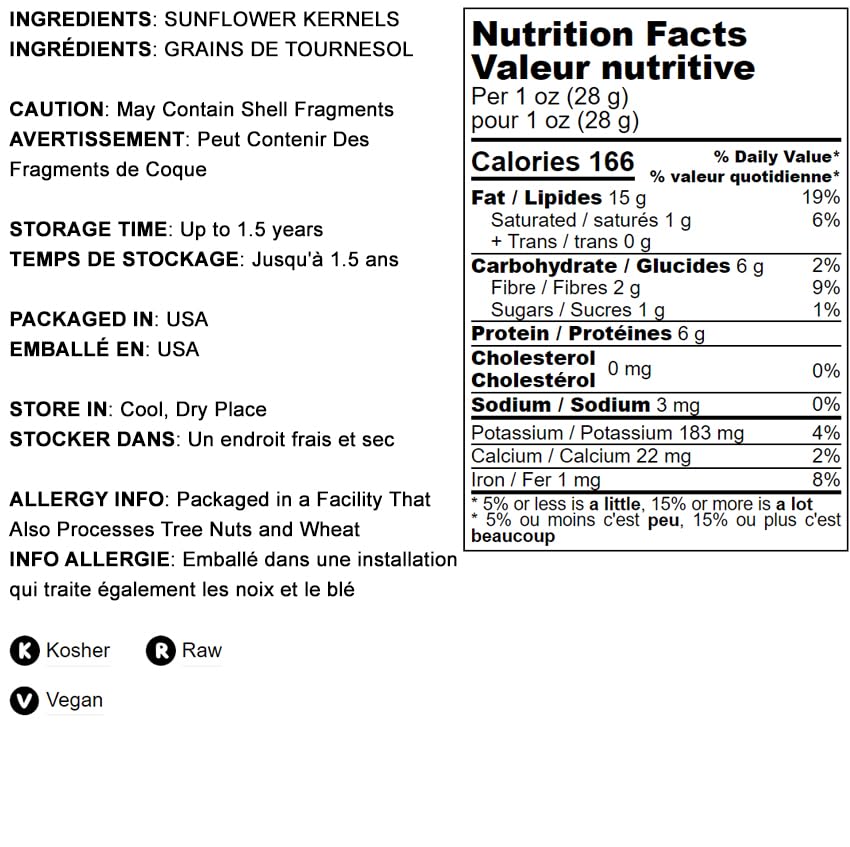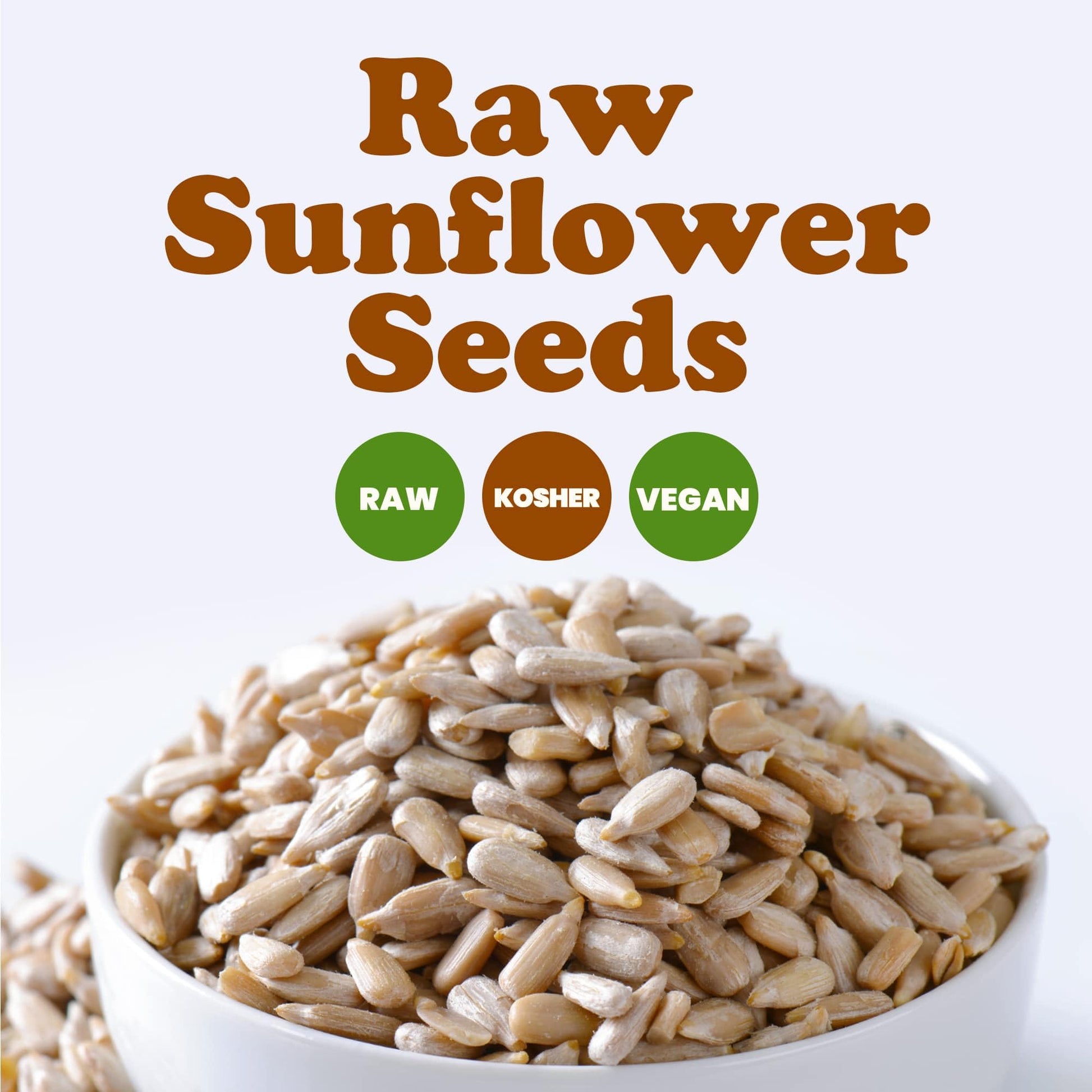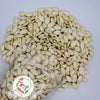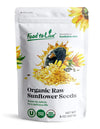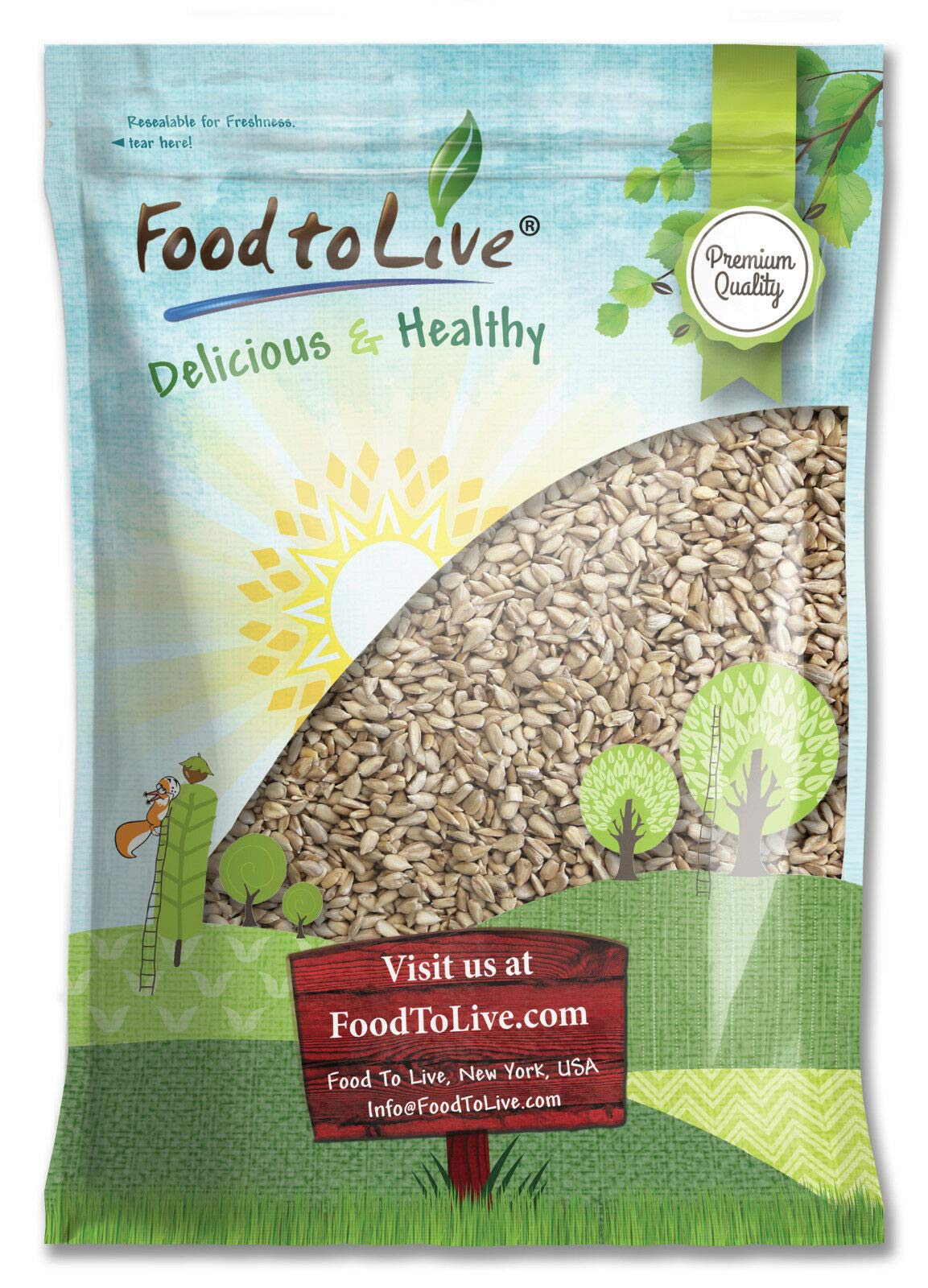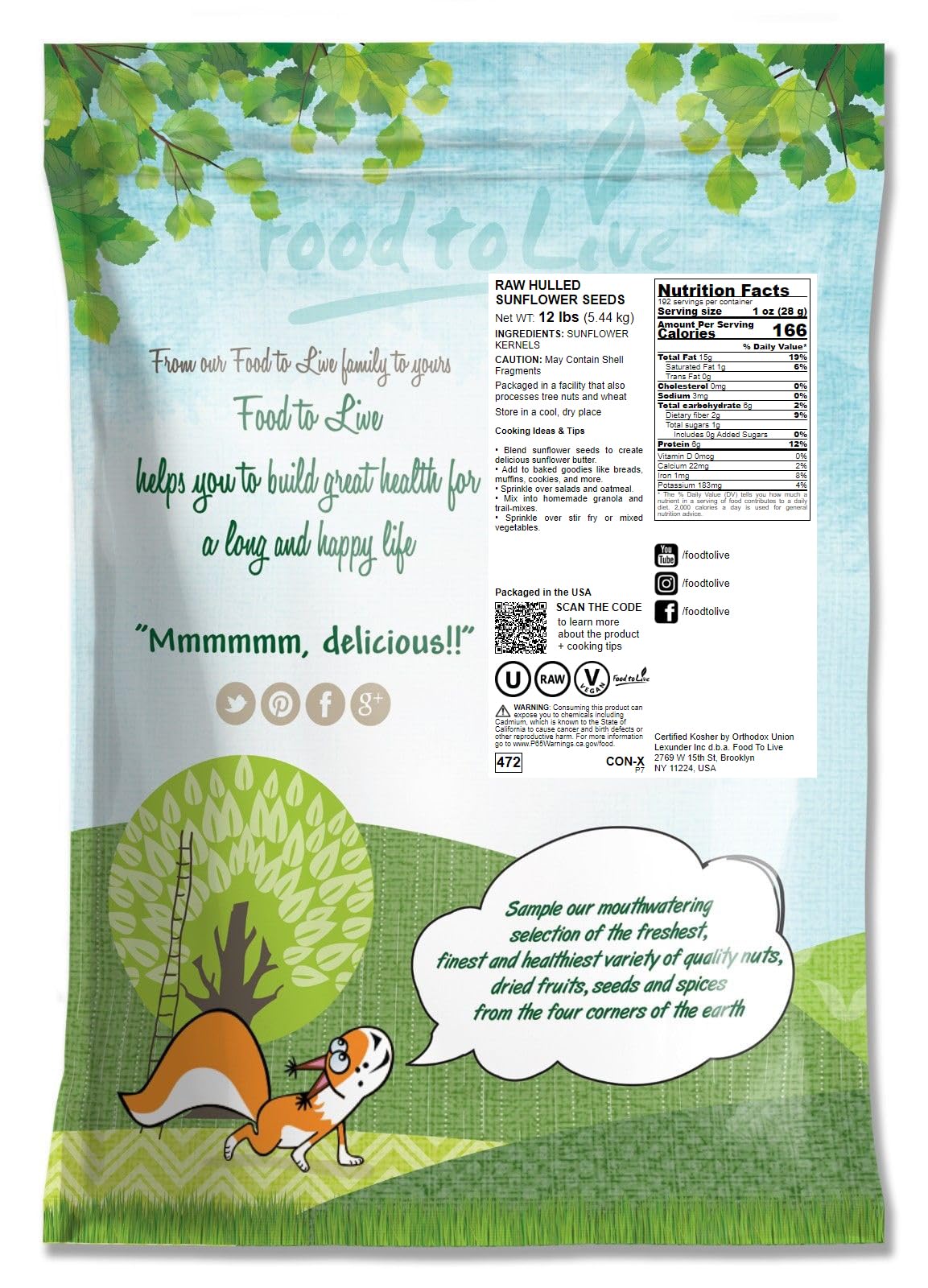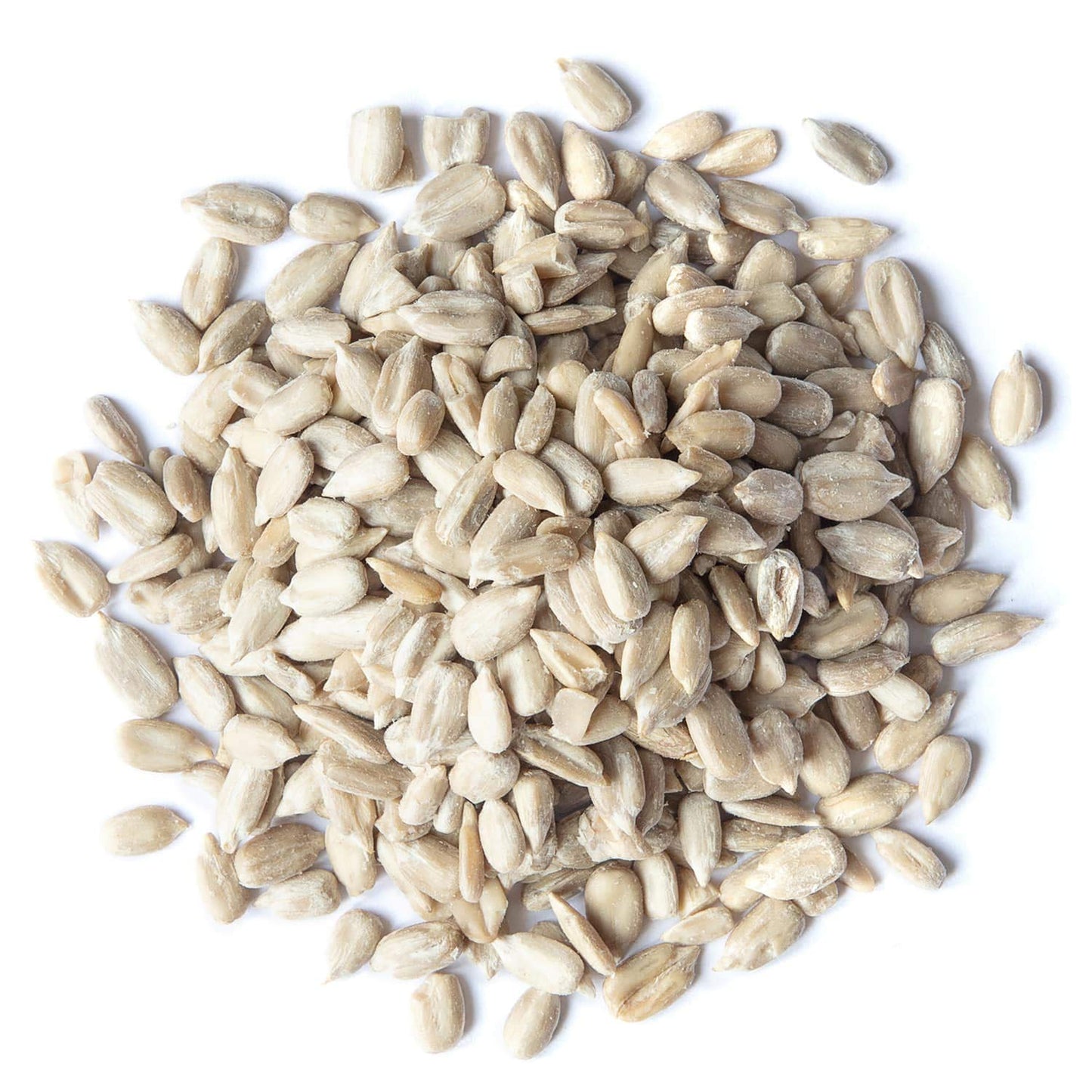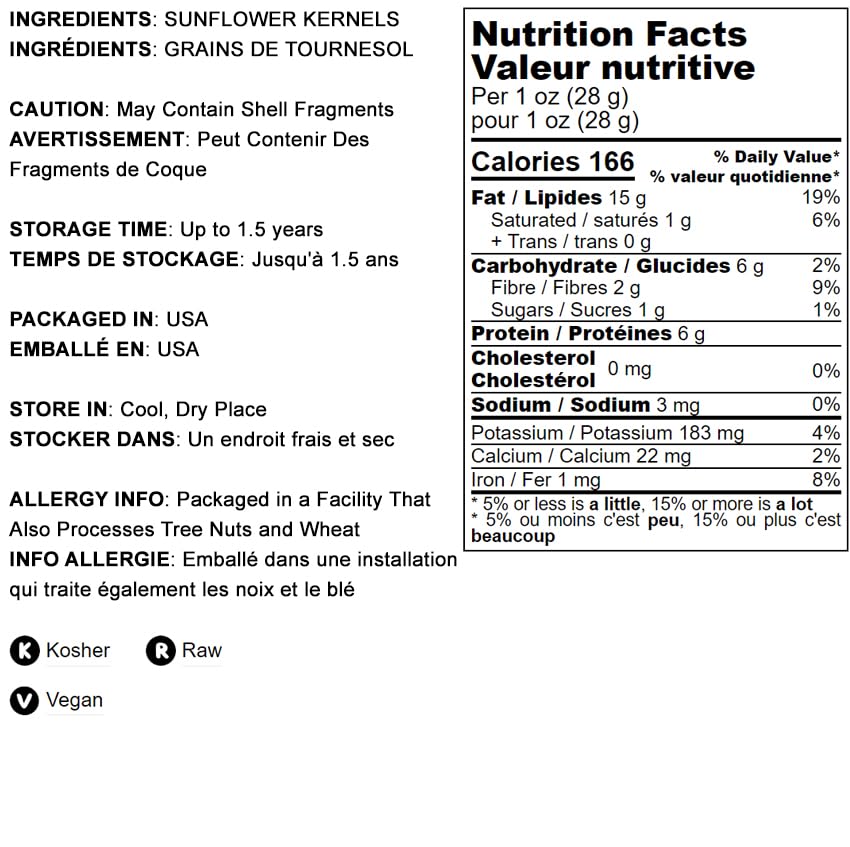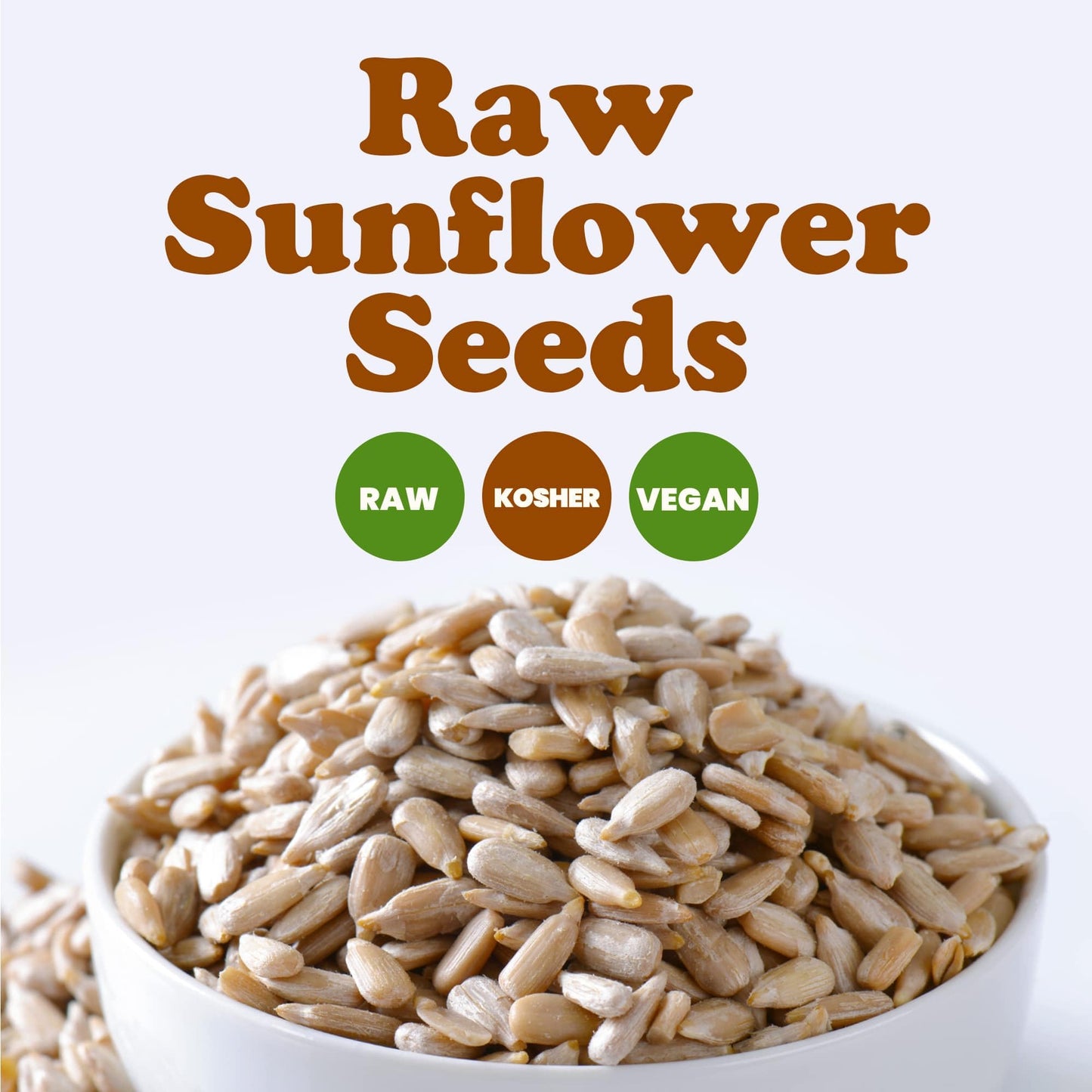You will not be allowed to compare more than 4 products at a time
View compareProduct Description
Used in many cuisines all over the world, sunflower seeds are a precious source of essential nutrients and the most popular cooking oil. They can make many of your dishes pleasantly crunchy while the health benefits offered by these seeds are too numerous to count. Nutritional Value Sunflower seeds are one of the best sources of the following essential nutrients: - Vitamin E - Thiamin - Pyridoxine - Copper - Selenium - Phosphorus - Magnesium - Manganese Directions Store your bag of sunflower kernels in a refrigerator or in a cool dark place to keep them fresh for longer. Keep the bag tightly shut. The rich nutty flavor of sunflower seeds allows adding them to many dishes. They go best with salads, cereals, baked goods, and rice dishes. You can turn the seeds in a sweet snack by coating them in chocolate or candying the kernels. This product is processed in a facility that also processes tree nuts and wheat. Sunflower Seeds Allergy Warning Consumption of sunflower seeds can cause an allergic reaction in some people. Common symptoms of sunflower seed allergy are similar to many other allergies, such as peanut allergy. Possible allergic reactions include (but not limited to) diarrhea, vomiting, and anaphylaxis. If you have food allergy, consult your doctor before consuming sunflower seeds.WARNING: Consuming this product can expose you to chemicals including Cadmium, which is known to the State of California to cause cancer and birth defects or other reproductive harm. For more information go to www.P65Warnings.ca.gov/food
Frequently Asked Questions
- Q: What are the health benefits of consuming sunflower seeds? A: Sunflower seeds are rich in essential nutrients, including Vitamin E, Thiamin, Pyridoxine, Copper, Selenium, Phosphorus, Magnesium, and Manganese. These nutrients contribute to improved heart health, enhanced immune function, and better skin health, making sunflower seeds a nutritious addition to your diet.
- Q: How should I store sunflower seeds to maintain freshness? A: To keep your sunflower seeds fresh for longer, store them in a refrigerator or in a cool, dark place. Make sure to keep the bag tightly sealed to prevent moisture and air from affecting the quality of the seeds.
- Q: Can I use sunflower seeds in my baking recipes? A: Yes, sunflower seeds can be incorporated into various baking recipes. They add a delightful crunch and nutty flavor to baked goods such as bread, muffins, and cookies. Additionally, they can be sprinkled on top of baked dishes for added texture.
- Q: Are sunflower seeds safe for everyone to eat? A: While sunflower seeds are a healthy snack for many, they can cause allergic reactions in some individuals, particularly those with nut allergies. If you have a food allergy, it’s advisable to consult your doctor before consuming sunflower seeds.
- Q: What are some creative ways to enjoy sunflower seeds? A: Sunflower seeds can be enjoyed in various ways. They can be added to salads, cereals, and granola for a nutritious boost. Alternatively, you can snack on them raw, roast them for a crunchy treat, or even coat them in chocolate for a sweet indulgence.


